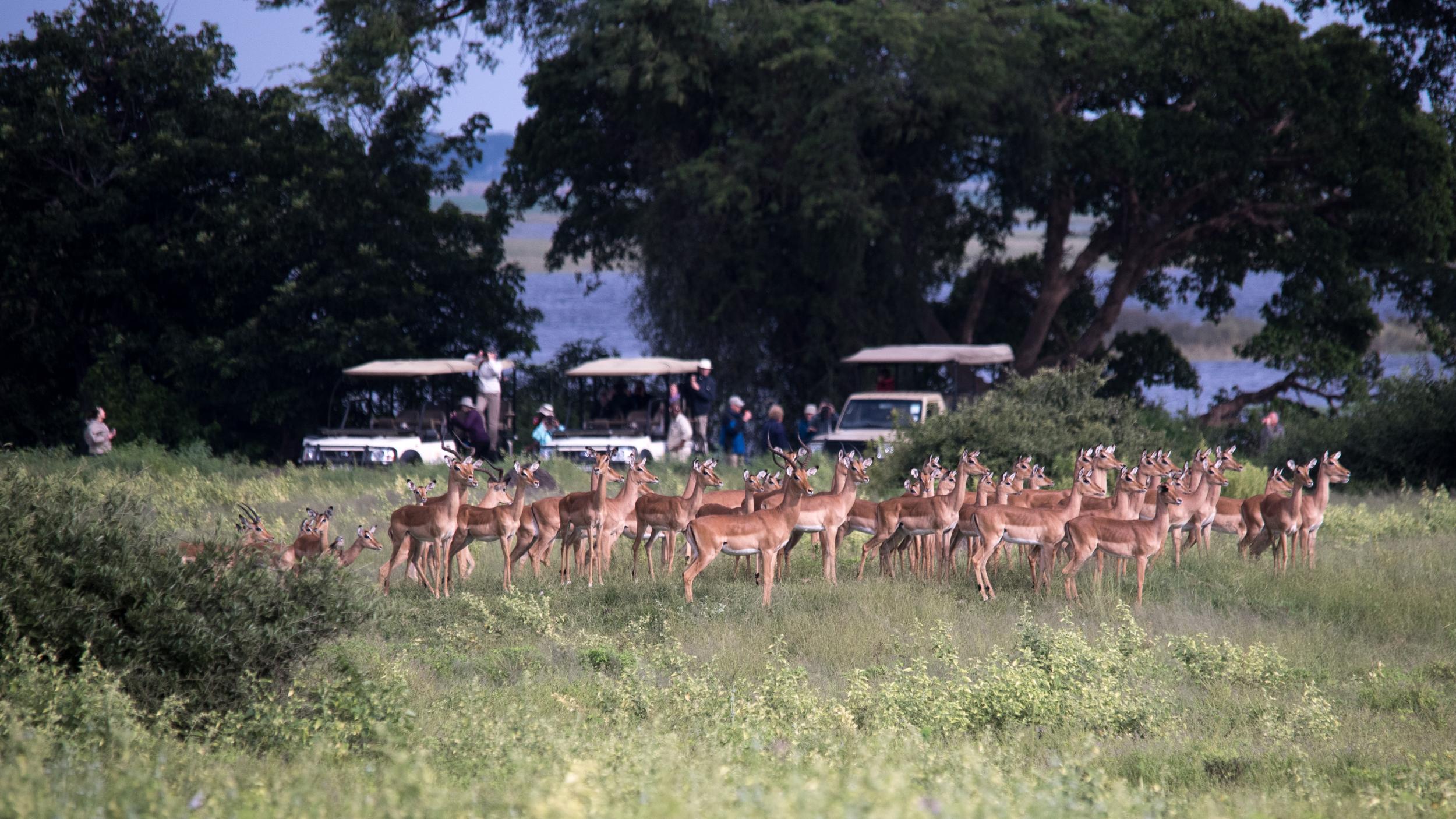Sharing tourism’s revenues for the benefit of Africa’s people
People living near Africa’s national parks demand more benefit from safari-goers increasing spending

Your support helps us to tell the story
From reproductive rights to climate change to Big Tech, The Independent is on the ground when the story is developing. Whether it's investigating the financials of Elon Musk's pro-Trump PAC or producing our latest documentary, 'The A Word', which shines a light on the American women fighting for reproductive rights, we know how important it is to parse out the facts from the messaging.
At such a critical moment in US history, we need reporters on the ground. Your donation allows us to keep sending journalists to speak to both sides of the story.
The Independent is trusted by Americans across the entire political spectrum. And unlike many other quality news outlets, we choose not to lock Americans out of our reporting and analysis with paywalls. We believe quality journalism should be available to everyone, paid for by those who can afford it.
Your support makes all the difference.By Ronald Musoke for The Independent in Uganda
Communities that live closest to wildlife conservancies across Africa want their contribution to the continent’s booming wildlife-based tourism recognised – with a bigger cheque. The communities are targeting money from governments, the private sector and international organisations.
“If we are to compare what we get in terms of tourism receipts and the average that a casual labourer gets in a tourism venture, can we really talk about an economic justice system that is delivering opportunities for all and that can lift everybody out of poverty?” said Masego Madzwamuse, a human rights activist from Botswana.
She added: “The sector also needs to address the issue of human dignity; there is no dignity in living side by side with wildlife (that is) generating large sums of income when you struggle to feed your family.”
She was speaking at the first ever Africa Wildlife Summit convened between June 23-25 by the UN Environment Programme (UNEP) and the African Union (AU).
Held in the Zimbabwean town of Victoria Falls, which is within the expansive Victoria Falls National Park with the smoky Victoria Falls on the Zambezi river in the backdrop, the summit was graced by Presidents Emmerson Mnangagwa of Zimbabwe, Mokgweetsi Masisi (Botswana), Hage Geingob (Namibia) and Edgar Lungu (Zambia), as well as business leaders, academics, civil society and ministers from across Africa.
Several speakers spoke about the future of Africa’s people and wildlife, how to unlock investments using wildlife, how the private sector can effectively invest in the wildlife economy and how communities living adjacent to wildlife conservancies need a “new deal” and not the current “raw deal.”
“We feel that the governments and other partners understand the importance of the communities in conservation and as caretakers of protected areas, we should see this reflected through the revenue these areas and wildlife bring in,” said Ishmael Chaukura, a Zimbabwean community leader.
In the end, a declaration signed by 40 community representatives from Botswana, DR Congo, Kenya, Malawi, Mozambique, Namibia, Senegal, South Africa, Uganda, Zambia and Zimbabwe, called for urgent reforms in the management of wildlife conservation zones.
“We need to see reform, where our communities are put in control of nature and wildlife they live with. At the moment, decisions are taken by others and imposed on us,” said Chaukura, the Zimbabwean community leader.
He added: “Communities see only a fraction of the income from wildlife and nature earnings, yet we bear the costs of living with wildlife.”
Tourism drives 8.5% of Africa’s GDP and provides 24 million jobs with four of every five tourists visiting the continent coming to see wildlife in Africa’s 8400 protected areas, according to data communicated at the summit. These tourist excursions earn governments across the continent up to $48 billion.
But, delegates were told, Africa’s national parks and other state-owned conservancies could earn even more. Hospitality and recreation spend could double to more than US$ 260 billion by 2030 and provide significantly more tourism jobs.
A working paper presented at the summit by Space for Giants, a Nairobi-based international conservation non-profit, noted that bringing new private-sector investments to underfunded protected areas to capitalise on surging interest in nature-based tourism would help fund conservation without draining state finances, while driving sustainable local and national development. The paper was co-authored by Space for Giants and Conservation Capital; a conservation business and finance advisory firm.
Titled `Building a Wildlife Economy: Developing Nature—Based Tourism in African state protected Areas,’ the paper noted that capitalising on surging interest in nature-based tourism by bringing new private-sector investments to underfunded protected areas could help fund conservation and drive sustainable local and national development without draining state finances.

This article is reproduced here as part of the Giants Club African Conservation Journalism Fellowships, a programme of the charity Space for Giants and supported by the owner of ESI Media, which includes independent.co.uk. It aims to expand the reach of conservation and environmental journalism in Africa, and bring more African voices into the international conservation debate. Read the original story here.
Join our commenting forum
Join thought-provoking conversations, follow other Independent readers and see their replies
Comments